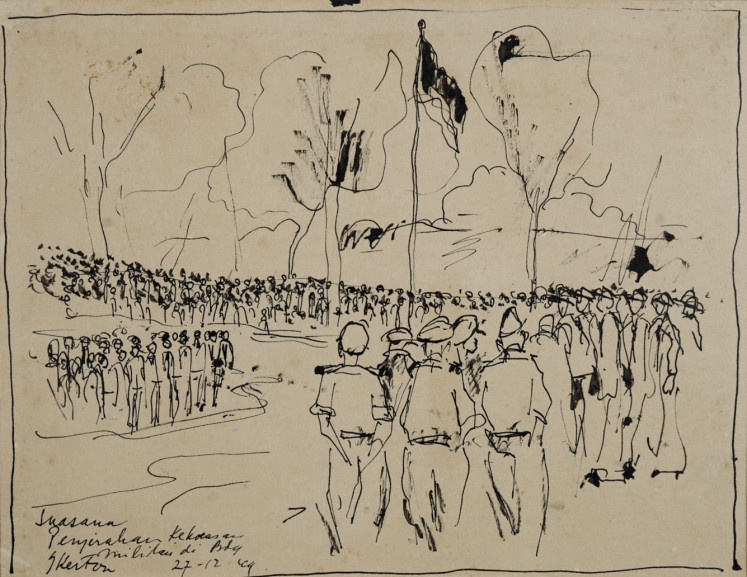Popular Reads
Top Results
Can't find what you're looking for?
View all search resultsPopular Reads
Top Results
Can't find what you're looking for?
View all search resultsUnderstanding decompression sickness: The divers’ disease
Decompression sickness (DCS), also known as divers’ disease or barotrauma, is a medical issue that arises from the effects of a sudden transition from high to low pressure.
Change text size
Gift Premium Articles
to Anyone
 The main cause of decompression sickness is nitrogen because at a certain pressure, nitrogen can only be accumulated up to a certain level. (Shutterstock/-)
The main cause of decompression sickness is nitrogen because at a certain pressure, nitrogen can only be accumulated up to a certain level. (Shutterstock/-)
S
yachrul Anto, 48, a volunteer with the Search and Rescue (SAR) Agency for the ill-fated Lion Air plane that recently crashed into the sea, was proclaimed dead on Friday.
According to a report by Antara on Saturday, the commander of the Indonesian Navy's SAR division, Isswarto, announced the cause of Syachrul's death to be decompression sickness.
Decompression sickness (DCS), also known as divers’ disease or barotrauma, is a medical issue that arises from the effects of a sudden transition from high to low pressure. It may be experienced during any depressurization event, whether under water, on an aircraft, or elsewhere.
As reported by kompas.com, when descending through water, external pressure increases proportionally to the depth and the compressed air inhaled has the same pressure as the surrounding water. This means the deeper someone dives the more compressed air is absorbed.
Read also: Diver dies in search for Lion Air jet crash dead
The main cause of DCS is nitrogen because at a certain pressure nitrogen can only be accumulated up to a certain level. Depressurization, done by ascending, releases the nitrogen in small bubbles and a sudden ascent produces a high number of nitrogen bubbles in a short time.
These bubbles can travel anywhere inside the body, causing symptoms such as deep joint pain, dizziness and itching. If the bubbles travel to crucial body parts such as the brain, spinal cord, or lungs, they can cause labored breathing, seizures and paralysis, which eventually lead to death.
In a 2014 report in the Hawai'i Journal of Medicine and Public Health Jennifer Hall wrote that several factors such as lack of physical fitness, obesity and repetitive diving can increase the risk of DCS. Hall stated that the best diving results are experienced by an individual who is fit, well-hydrated and does not push his or her limits. (iru/kes)









